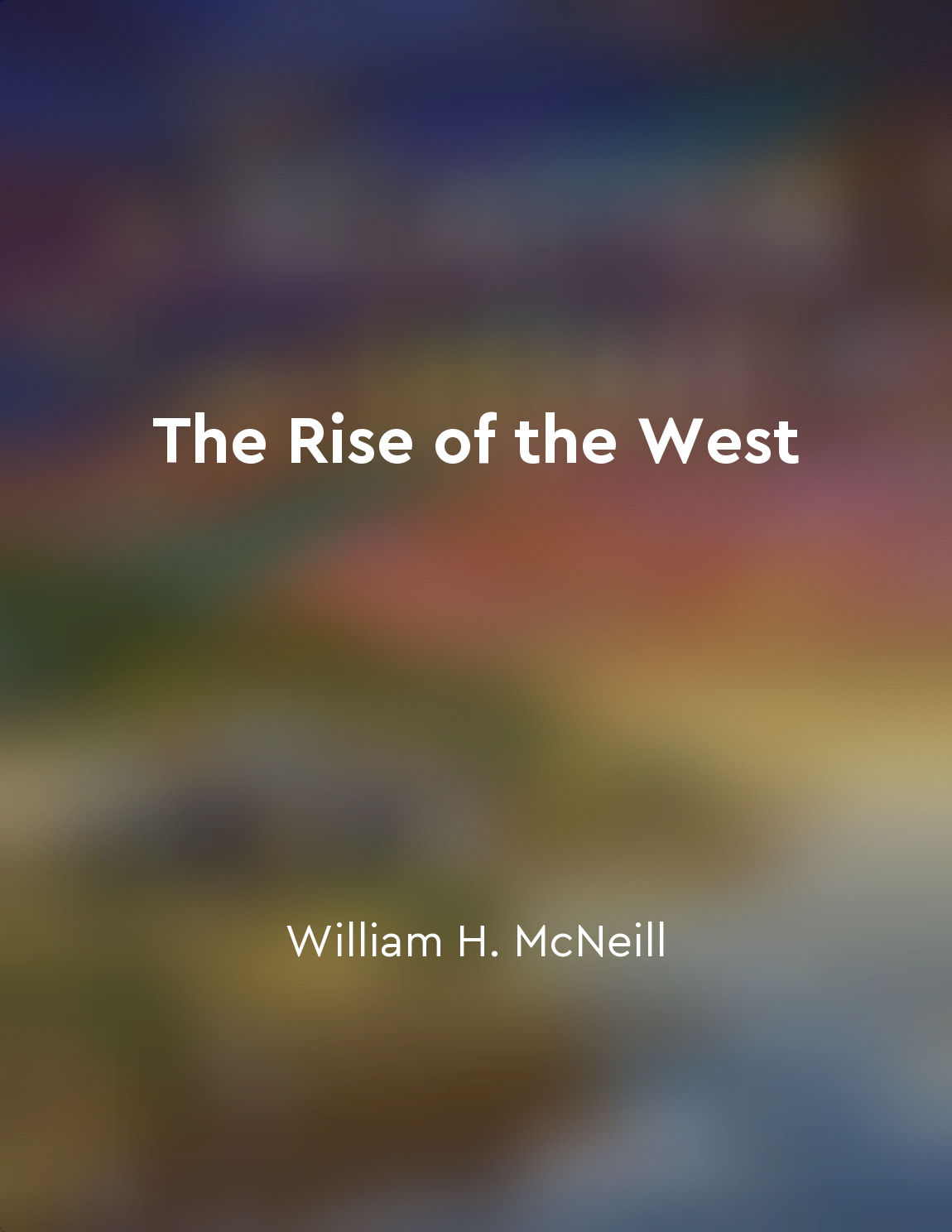The spread of ideas led to cultural exchange from "summary" of The Story of Mankind, Original Edition (Yesterday's Classics) by Hendrik Willem Van Loon
Throughout history, the movement of ideas has played a vital role in facilitating cultural exchange among different societies. As people interacted with one another, whether through trade, conquest, or peaceful communication, they shared their beliefs, values, and knowledge. This exchange of ideas often resulted in the blending of cultures, leading to the creation of new customs, traditions, and ways of thinking. For example, during the Age of Exploration, European explorers traveled to distant lands and encountered new civilizations. They brought back not only goods such as spices and silk but also ideas and technologies that transformed European society. The exchange of knowledge between the East and the West led to advancements in areas such as science, medicine, and navigation. Similarly, the spread of religions like Christianity, Islam, and Buddhism has contributed to cultural exchange by introducing new spiritual beliefs and practices to different parts of the world. As these religions spread, they influenced art, architecture, literature, and social customs, shaping the cultural identities of diverse societies. Furthermore, the invention of the printing press in the fifteenth century revolutionized the spread of ideas by making it easier to reproduce and disseminate information. Books, pamphlets, and newspapers circulated widely, allowing people to learn about new ideas and perspectives from distant lands. This increased accessibility to knowledge fueled intellectual curiosity and encouraged the exchange of cultural practices.- The spread of ideas has been a driving force behind cultural exchange throughout history. As people interact and share their beliefs and knowledge, they contribute to the enrichment and diversity of human culture. This ongoing exchange of ideas continues to shape our understanding of the world and our place within it.
Similar Posts
Industrialization transformed economies and societies
The shift from agrarian societies to industrialized economies marked a significant turning point in human history. With the adv...

Dutch colonization of America began in early 1600s
The Dutch colonization of America began in the early 1600s when the Dutch West India Company established trading posts in the r...

Innovation drove economic growth
In the course of centuries, mankind has made many inventions. Every new machine that it has invented has made the work of men e...

The West's rise impacts global power dynamics
The emergence of Western Europe as the dominant power in the world has had a profound impact on global power dynamics. The rise...
History serves as a mirror through which we can reflect on our past and envision our future
In the vast tapestry of human history, we find a reflection of our past actions and decisions. Through the lens of history, we ...

Social movements fought for equality and justice
In the course of the past two centuries, there had been a great many social movements. These movements had one common aim: the ...

Humans have the power to shape the trajectory of their future
Humans possess a unique capability that sets them apart from all other species on Earth - the ability to shape the trajectory o...
India's ancient civilizations have left a lasting impact on the world
The ancient civilizations of India have had a profound and enduring impact on the world, shaping the course of history in signi...
Irish monks as cultural innovators
The Irish monks of the Middle Ages were not just pious men of prayer. They were also cultural innovators whose impact on Wester...
The IT boom in India has positioned the country as a global leader in technology
The rapid growth of the information technology (IT) industry in India has catapulted the country onto the global stage as a maj...

